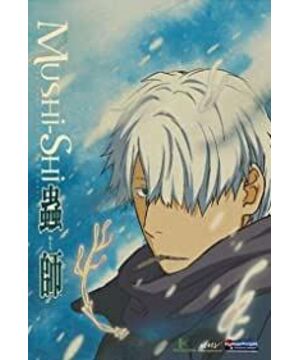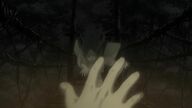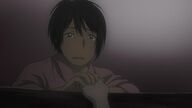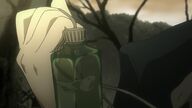Because of the particularity of this role, they are often endowed with a peculiar ability, they have a higher perspective than ordinary people, and can understand the operating principles of the two worlds. It is reminiscent that the origin of this character may have come from witch doctors or shamans in ancient times. It is this ability that makes them almost born with this heavy tragic fate on their shoulders, and this tragic fate also prevents them from experiencing joys, sorrows and sorrows like normal people, so most of them choose their own exile, and wandering. Just like Yingu, because his worm's physique prevented him from staying in one place for a long time, he had to wander around. However, this wandering may also be their self-realization of their tragic fate.
The interpretation of Western Christian culture is that this kind of wandering is a kind of self-salvation. Because people are born with sin, they must accept this tragic fate and use their own actions to obtain redemption. However, modern psychological research thinks that tragedy seems to be one of human nature. As Maslow said, tragedy is when people turn to the direction of tragedy when their self-worth cannot be realized. Self-imposed exile is a tragic result, just as Heidegger's throwing of man is the basis of his whole doctrine, "Neither of all things (animals and plants) are particularly protected, although they are all put into the open and Enron is in the open. On the contrary, as a person who takes himself as a will, not only is he not particularly protected by the whole being, but he is unprotected. The unprotected person is everywhere on the way, how can he escape from the tragic experience Net." We think Yingu's exile is beautiful, maybe we can see his own shadow in him. Because each of us has more or less talent in us, just like we have this experience, as if the more we know, the greater the responsibility. Then I always try to use my knowledge and experience to change the world. No matter what the result is, this kind of attempt often has to pay a huge price. Even so, I am often reluctant to compromise and give up, so I gradually admit my destiny, in a kind of sadness. advance in color.
However, I think this kind of exile is not necessarily negative, and this tragic fate is often a very important factor in human growth. Because there is a spirit in human nature that wants to fight against fate. This is why Miyazaki's animation has changed from the reconciliation of the conflict between man and nature at the beginning to the reconciliation that seems to be very strong with growth (because in the end this reconciler has to sacrifice to complete the harmony of human beings). Redemption) I remember that an episode of Insect Master was devoted to the story of Yingu being taken in by his master inadvertently when he was a child. It was also the master who taught him the knowledge of worms and taught him the meaning of coexistence between humans and worms, because not many people have the ability to see worms. In the end, in order to insist on his beliefs, the master was unwilling to hurt the insects, and rescued Yingu from being swallowed by the insects. Since then, Yingu finally let go and understood his mission. In fact, many stories in the insect master are about struggle and growth in fate. It can be seen that this proposition is so fascinating, because people are small, and the spirit of struggle is exhilarating. When these meanings are injected into the works of art, the works show infinite vitality and appeal.
View more about Mushi-Shi reviews










